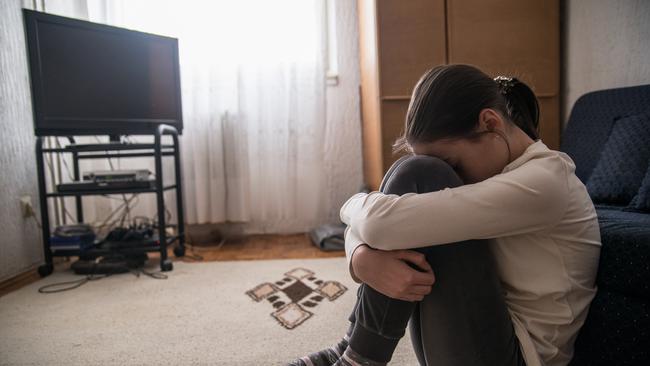Coronavirus: Cries for help as kids struggle with new-found freedom
Melbourne students battling lockdown-related mental illnesses are continuing to struggle despite returning to classrooms.

Melbourne students battling lockdown-related mental illnesses are continuing to struggle despite returning to classrooms, with doctors revealing they are being overwhelmed by an unrelenting crisis among children and teenagers.
Medical experts have told The Australian that major psychological and emotional problems triggered by the coronavirus restrictions had not been fixed by schools reopening.
Camberwell GP Stacey Harris said the return to school had, in some cases, exacerbated mental health problems of young patients she was treating.
“If anything, it is worse now than during lockdown. Kids aren’t coping with going back to school,” Dr Harris said. “There’s just as much restricted eating, anxiety, depression. They can’t adjust to going back to school, it is all frightening to them. They’ve had way too long at home, and so going back to school has been extra hard.”
The coronavirus shutdown of classes hit Melbourne’s 160,000 students in Years 8-10 hard, with them missing 22 weeks of schooling, as they were forced into remote learning for most of term two, all of term three and four weeks of term four. Doctors say this age group, aged 12-15, is among the worst hit by the lockdown. Dr Harris said she and other GPs were struggling to keep up with demand, and the crisis was deepened by long waiting lists for adolescent mental health specialists.
Liam Tjia, a leading developmental paediatrician, said: “They were learning new development skills like reading and writing and social and fitting in and negotiating friendships and conflicts, and they had a cold-turkey break of that, and are simply not able — a lot of them — to magically pick up where they left off. It doesn’t work that way.
“I have already seen kids where this is an issue; their learning, confidence and motivation and socialisation is already one of their challenges, and of course for a lot of them, it will be poison, the interruption, and trying to resettle into a school setting.”
Dr Tjia said some children would experience the consequences of lockdowns into 2021 and beyond. “Online learning was horrific for kids and families. Some kids might have academically fallen behind but I think the equally important but understated problem is that a lot of kids have lost confidence and motivation for their school work and learning ability,” he said.
Dr Tjia said compounding the academic issues linked to the school shutdown were social challenges. “A lot of kids have social challenges at school in all ranges, some are really severe, suicidal. For others it is not acute, but it is a struggle fitting in and worrying about one’s self image. And for those kids the interruption causes all sorts of problems, leaves them feeling they’re starting from scratch with social circles.”
A senior child psychiatrist, who declined to be named, said structural and funding issues in Victoria’s mental health services for children had been exacerbated by the lockdowns.
“What the lockdowns have exposed ... is the very deep structural flaws in how we look at kids’ well being in mental health,” the expert said. “It was on a knife’s edge ordinarily and the lockdown really pushed things over … and exposed how unmanageable things actually are.”
The expert said Department of Health and Human Services data confirmed a spike in mental health problems among children and adolescents. “The department’s own data from relatively early in the lockdown showed quite clearly an increase in referrals to children and adolescent mental welfare services. Somewhere in the range of 30 to 50 per cent in all referrals,” the expert said. “The department would share concern and interest and sympathy from the outset, but there was never any talk of resources to actually match this.
“So it was quite galling that we can bring on 2000 ICU beds in a long weekend that never end up needing to be used just on the prospect of a possible increase in demand, but when we see a meaningful increase in demand and suffering and self-harm and suicides there is no kind of mechanisms … to improve resourcing.
“What you could do with mental health services for the price of about 15m of tunnel is immeasurable. We need more clinicians.
“Everyone is experiencing increased demand, and we’re full and bursting at the seams — both public and private services.”
Dr Tjia confirmed the medical services were overwhelmed. “It has been a struggle forever, and it will now be diabolic.”




To join the conversation, please log in. Don't have an account? Register
Join the conversation, you are commenting as Logout